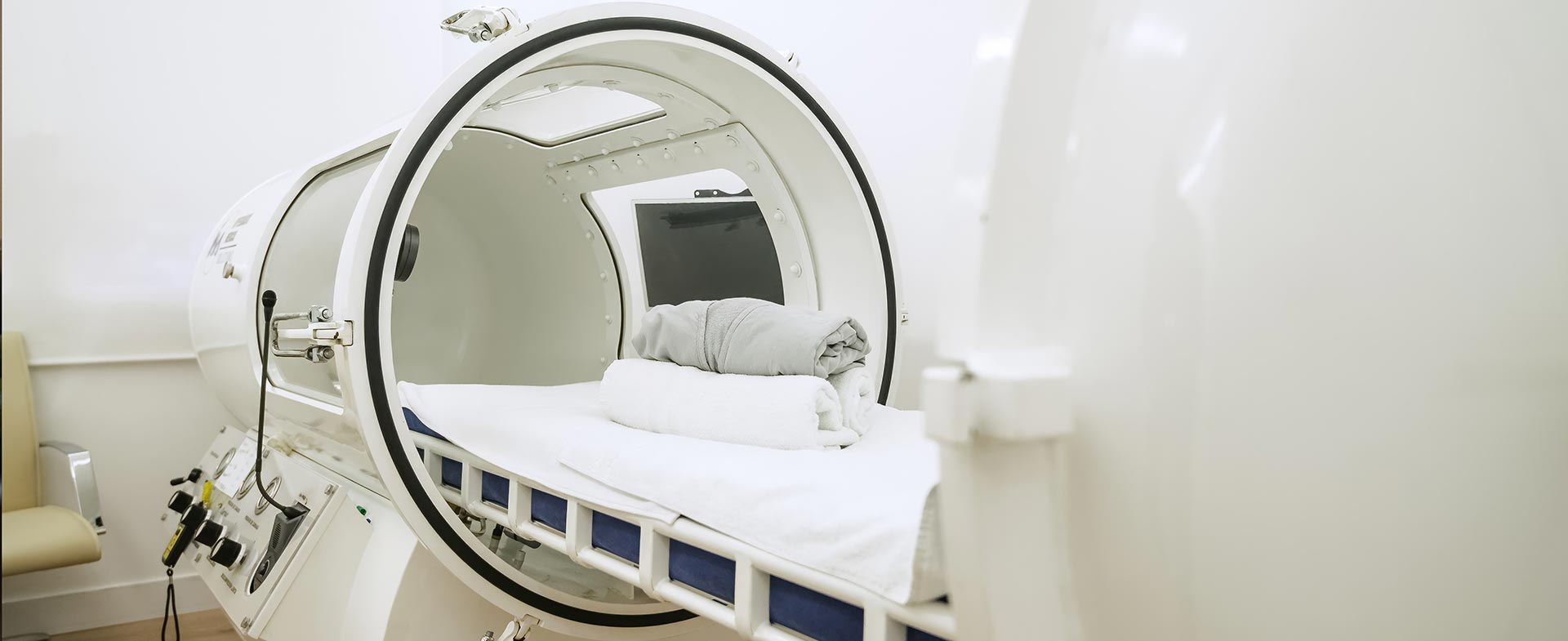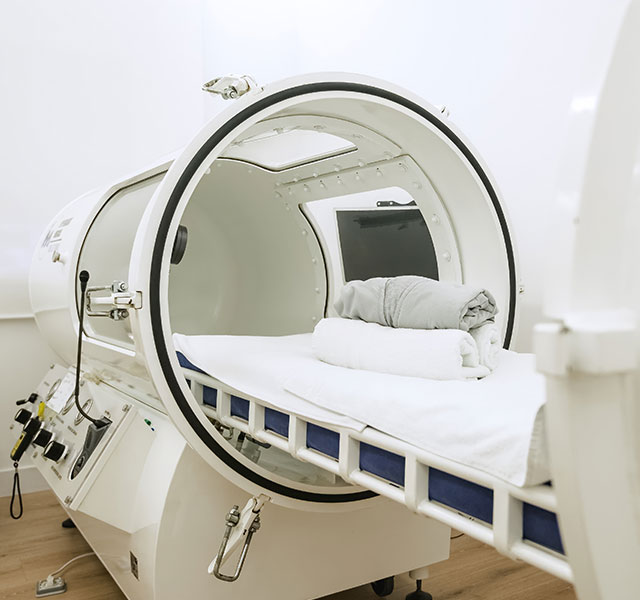You might know that hyperbaric oxygen therapy (HBOT) can treat decompression sickness after deep-sea diving. But this therapy isn’t just for scuba divers. Many people can reap the benefits of HBOT, which can heal certain infections, skin wounds and complications from radiation therapy.
Here, Gary Reinheimer, M.D., a primary care physician at Henry Ford Health, explains hyperbaric oxygen therapy and how it can treat many conditions, including chronic wounds, bone infections and tissue damage.
Benefits Of Hyperbaric Oxygen Therapy
“Your skin and tissues have a remarkable ability to repair themselves, but they need an adequate blood supply to do it,” says Dr. Reinheimer. In order to recover, tissues need oxygen and nutrients, which are delivered in the blood. Hyperbaric oxygen therapy delivers 100% oxygen at high pressure to increase the amount of oxygen available in the tissues and stimulate new blood vessel growth.
“HBOT can heal wounds and tissue damage that have lingered for months or even years,” Dr. Reinheimer says. “In most cases, the healing effects of HBOT continue even after you’ve completed your treatment.”
What Does Hyperbaric Oxygen Therapy Treat?
Hyperbaric oxygen therapy is FDA-approved and covered by Medicare to treat many different health issues, including:
Diabetic foot ulcers
Ulcers (sores) and other wounds that won’t heal often respond well to HBOT. People with diabetes are especially prone to these chronic skin wounds. If your doctor has diagnosed you with a diabetic foot ulcer that is Wagner grade 3 or higher, HBOT may work for you.
“Diabetes can affect your immune system and your circulation, which leads to sores that can become serious,” says Dr. Reinheimer. “We’ve helped people avoid amputation from a skin wound that wouldn’t heal. If you’re facing a possible amputation, ask your provider if HBOT might be an option first.”
Delayed radiation injuries
Radiation is an important cancer treatment, but it can sometimes affect the surrounding tissue. HBOT can treat radiation damage after cancer treatment, including:
- Incomplete surgical healing affected by radiation therapy
- Osteoradionecrosis (bone healing problems)
- Radiation-induced cystitis (bladder inflammation)
- Radiation proctitis or enteritis (inflammation or infection in your rectum)
- Refractory osteomyelitis (bone infection that doesn’t respond to antibiotics)
Skin graft problems
If you have a skin graft or flap that isn’t “taking” or healing properly, HBOT can help. “A skin graft needs an adequate blood supply to fully heal,” says Dr. Reinheimer. “Hyperbaric oxygen therapy is often the extra boost that skin needs.”
Does Insurance Cover Hyperbaric Oxygen Therapy?
Many insurance companies, including Medicare, cover HBOT if you have a qualifying health condition. “We confirm insurance coverage for every patient before starting treatment,” Dr. Reinheimer says.
What Is Hyperbaric Therapy Like?

HBOT requires 30 to 60 treatments for effective results, each taking about two hours. “Hyperbaric therapy takes time, but the results can be life-changing,” says Dr. Reinheimer. “Most of our patients will say the healing effects were worth the commitment.”
Patients can watch TV or rest while the oxygen does its work. You may feel your ears pop inside the chamber as the pressure slowly increases. “Patients say it feels like being on an airplane, and it’s not painful,” says Dr. Reinheimer. “We make sure you feel comfortable throughout your therapy.”
Is Hyperbaric Therapy Right For You?
Like all medical treatments, HBOT has benefits and possible side effects, such as earache or temporary vision changes. “We talk with you about all the pros and cons of hyperbaric oxygen therapy so you can make an informed decision,” says Dr. Reinheimer. “You can also minimize side effects by going to a credible hyperbaric program overseen by an experienced, board-certified physician.”
Dr. Reinheimer and his team are passionate about hyperbaric therapy because they’ve seen the positive results. “Many of our patients achieve complete healing from ongoing health issues when they thought they had no options left,” he says. “Seeing them live a healthier life is so rewarding.”
Reviewed by Dr. Gary Reinheimer, Medical Director of Hyperbaric Medicine at Henry Ford Medical Center - Chesterfield.



